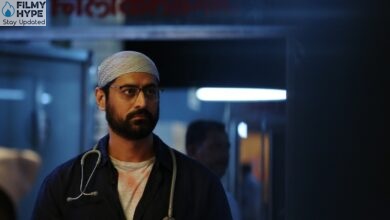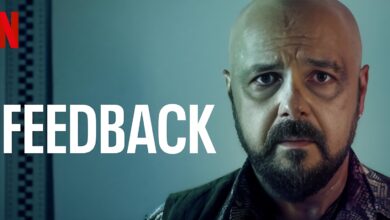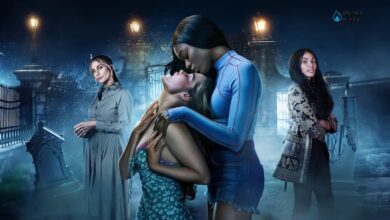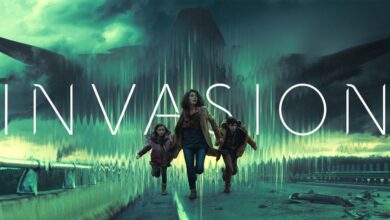One Piece Review Netflix: The Perfect Balance Between Fidelity and Innovation
Cast: Iñaki Godoy Jasso, Emily Rudd, Mackenyu, Jacob Romero, Taz Skylar
Creators: Steven Maeda, Matt Owens
Streaming Platform: Netflix
Filmyhyype.com Ratings: 3.5/5 (three and a half stars)
Returning to the world of One Piece is a bit like meeting up with old friends after a long period: we have grown up and they too have undergone transformations, but a certain bond persists. For young people who grew up between the 90s and the first decades of the 2000s, Eiichir Oda’s manga (and, consequently, the anime) represents an icon. We are talking about a work that enjoys extraordinary success, becoming the best-selling manga in the world. I confess that I felt a certain apprehension when I found out that Netflix was going to make a live-action series, above all because of the bad experiences with adaptations such as Dragonball Evolution (released at the cinema in 2009, based on Akira Toriyama’s manga), the unsuccessful Death Note – The Death Note (2017, based on the manga written by Tsugumi ba and drawn by Takeshi Obata) and the questionable version of Ghost in the Shell (2017, based on the manga by Masamune Shirow).
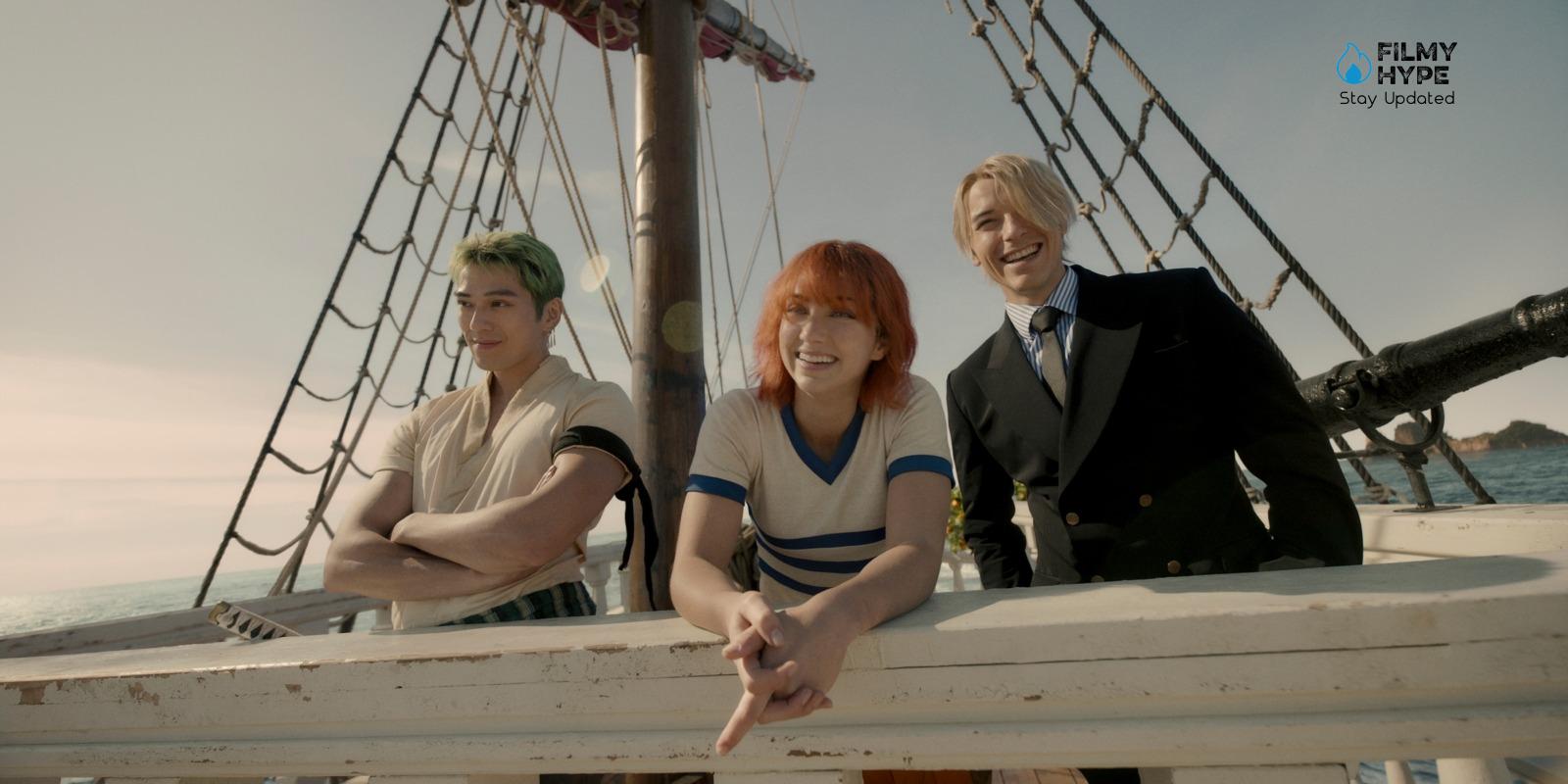
In short, three live-action manga transpositions that have disappointed expectations. What finish line would there be left for One Piece, the record-breaking manga and one of the most followed anime in the world? Perhaps have a worthy live-action transposition that manages to dispel the curse that has accompanied this type of transposition for decades, whether Western or Eastern. A difficult task that One Piece Netflix, available from today on the streaming platform, embraces in a surprisingly joyful and kitsch way, abandoning any ambition for a realistic adaptation but failing to fully hit the target despite showing some very interesting intuition.
One Piece Review Netflix: The Story Plot
The young Monkey D. Luffy (Inaki Godoy) has a dream: to find the legendary treasure of the pirate Gold Roger, the One Piece, and become the King of the Pirates. But Luffy isn’t the only pirate on the hunt for the mythical treasure, there are more aggressive and prepared ones with well-equipped ships and crews ready for anything. In addition, there is also the Navy, a military body that has the task of protecting the weakest from the raids of these notorious and highly sought-after pirates. Intending to put together a crew and find a ship, he crosses paths with the crew of the Alvida Pirates saving the young Koby. The two then arrive in Shells Town where Luffy meets the pirate hunter Roronoa Zoro (Mackenyu) and the thief Nami (Emily Rudd).
While Zoro is placed under arrest, Luffy and Nami form an unlikely alliance to penetrate the Navy base located in the city and steal the map to the Grand Line, a strip of sea full of islands but also fearsome pirates where it is said that the One Piece. Guarding the map, however, is Navy Captain Morgan. Zoro freed, the three flee after a tough battle but showing off their incredible fighting skills: Zoro with even three swords, Nami with her stick, and above all Luffy who can stretch at will after having ingested a mysterious Fruit of the Devil.
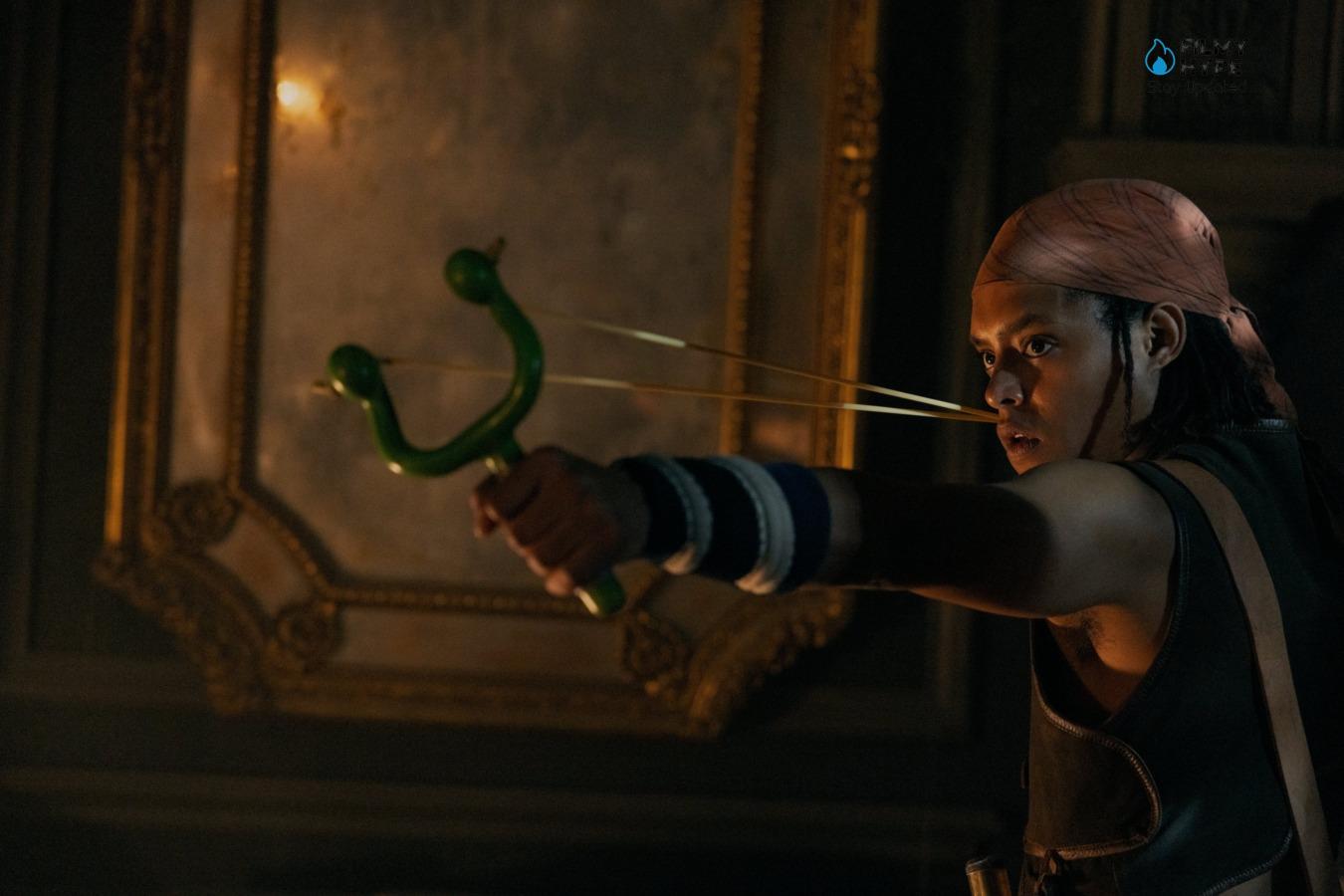
Becoming them despite a crew, which is now on the radar of the Navy itself, thus begins the pilgrimage in the Eastern Sea. At first Luffy, Zoro, and Nami are captured by Buggy, a pirate disguised as a clown, who wants to take over the map. Then in Syrup Village, looking for a new ship, they cross paths with the chatty Usopp. There they befriend Kaya, the owner of the shipyards for which the village is famous, rescuing her from the clutches of the butler Klahadore. The Straw Hat Pirates, the cheerful group led by Luffy is renamed because of the hat given to him by the pirate Shanks, even attracts the attention of the Vice Admiral of the Navy Garp who exploits poor Koby to follow Luffy and his men.
After an initial skirmish between the Straw Hats and Garp, the crew arrives at Baratie, a floating restaurant where they meet the skilled cook Sanji and especially his powerful kicks. There Zoro collides with Dracul Mihawk, one of the members of the Fleet of Seven or pirates with whom the Navy has made a truce, being seriously injured. However, the real threat is Arlong and his fishman pirates. How did he know that Luffy and him had the map to the Grand Line? With Zoro convalescent, Luffy will have to make his first real choice as captain and save his crew.
One Piece Review Netflix and Analysis
One Piece Netflix fascinates and shocks the viewer. The narrative structure of the TV series is typical of an original story, but it bends and adapts, making a great effort in some passages that are perhaps a bit long and didactic, to accommodate that of the original work. The most obvious example is that of adapting 4 different narrative arcs of two episodes each into 8 episodes. Each narrative arc is also characterized by long sequences in analyses that explain the origins of the various members of the Straw Hat Crew. It is a bold choice of the showrunners and screenwriters Steven Maeda and Matt Owens (Luke Cage, Agents of SHIELD, The Defenders) which is reflected in very specific characterizations and themes, and once again slavishly taken from the original work.
A group of young pirates in search of a mythical treasure could have been a plot that Hollywood could have distorted in a thousand ways, just look at the disappointments of Cowboy Bebop or more recently Saint Seiya at the cinema, and instead as in sensei Oda’s manga, the research for the One Piece soon becomes a pretext to tell something different. It starts with a sui generis protagonist like Monkey D. Luffy who with his incredible positivity infects everyone by extracting, with the proverbial pliers, that desire for adventure, freedom and to make their dreams come true from those who cross his path. Whether it’s his initially reluctant traveling companions or his adversaries – see Mihawk, but also Garp and above all Koby who learns at his expense that there is a gray area in the world.
In this sense, One Piece Netflix works well, very well indeed, perhaps better than any other adaptation based on a manga or anime in recent memory, because it manages to convey that sense of Nakama – of the family understood as individuals who share the same destiny – which is one of the most vivid and vital themes of One Piece as well as the one that allowed it to become a transgenerational phenomenon. There are several typical aspects of the shonen target manga which are taken up with reasonable effectiveness such as the long sequences in analysis with the origins of the characters which also serve to explain their motivations, the increasingly stronger antagonists, and the aforementioned division into arcs narratives and then above all the fights.
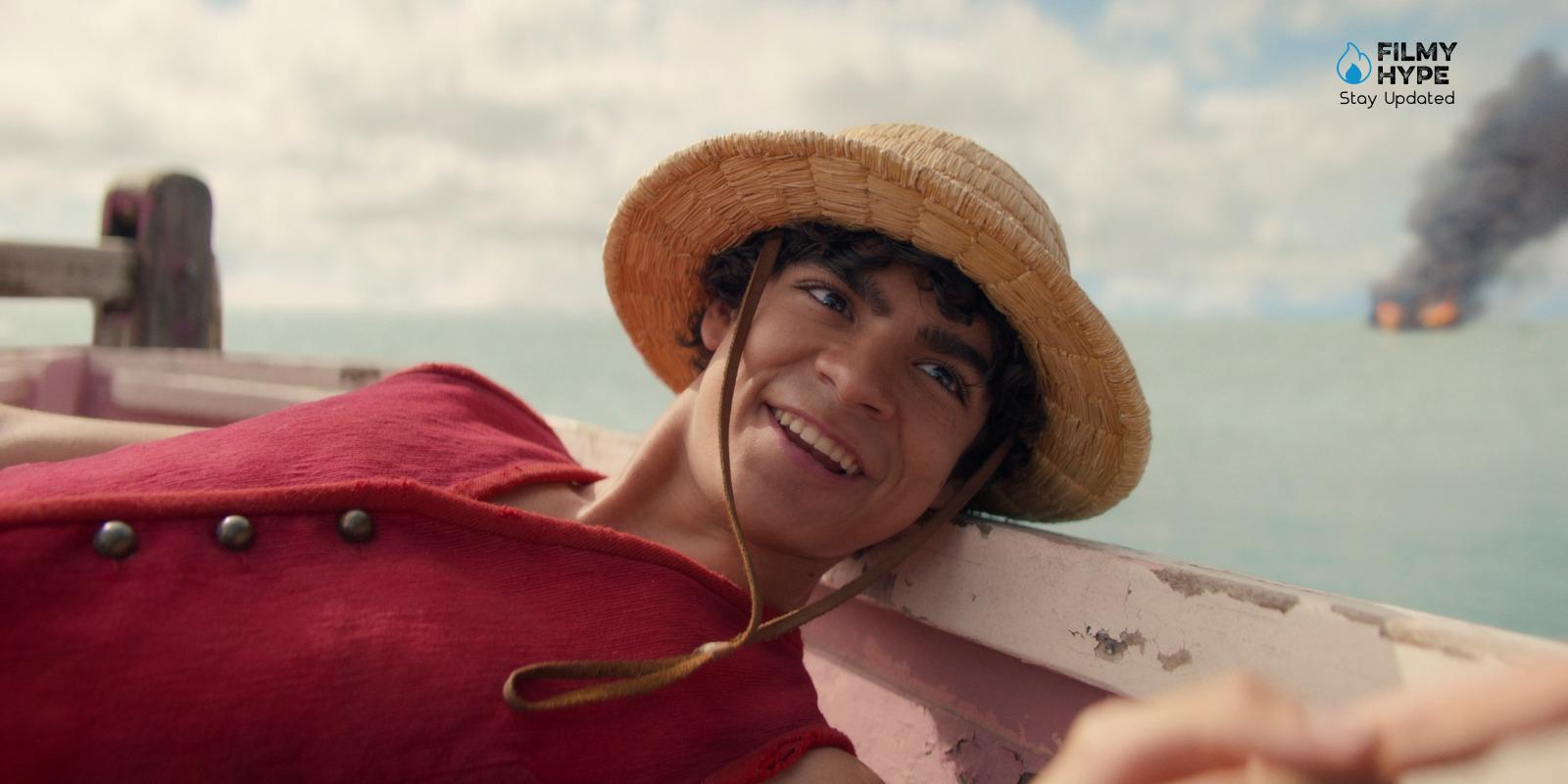
On the one hand, there is a spot-on cast in which the irresistible mimicry of Inaki Godoy stands out who seems born to play Monkey D. Luffy, the detached coolness of Mackenyu in the role of Roronoa Zoro and the tenacity of Emily Rudd in those of Nami). Perhaps Taz Skylar’s Sanji would have deserved a little more space while the one most reworked, and on which perhaps the fans of the first hour will have something more to say, is Jacob Romero’s Usopp. Difficult not to sympathize or not to identify with at least one of the members of the Straw Hat Crew. Even the villains don’t joke with Vincent Regan who stands out above all by being able to give Garp an air as solemn as it is inscrutable. It must also be said that One Piece Netflix is a faithful but not slavish adaptation and above all it is not without defects.
These 8 episodes roughly adapt the first 12 tankobon of the manga (and the first 50/55 episodes of the anime) so at times the sensation is that of seeing a compilation film with events that follow one another very suddenly. A thoughtful choice which, however, is weighed down by the average length of each episode, around 60 minutes, in which some passages are too didactic. If on the one hand when the attention is concentrated on Luffy and his companions the pace is fast and the narrative is always gripping, the choice to give more casual spectators the support of Garp and Koby’s point of view on the events often dampens the tension also due to some redundant “explanations” for some turning points of the plot which frankly could have been left aside at least for the moment. Technically the direction is punctual, and it can seek solutions that are as similar as possible to those of animation. Irregular cuts, wide angles, and various deformations.
Where the operation is most successful, however, is in the fights thanks to camera movements without lateral or circular cuts, few cuts, and a predilection for a typically cartoonish horizontality. The choreography is good, even if at times very elementary, with all due respect to the special effects whose budget is largely reserved for Luffy and his stretches which are credible. Everything else is skimped on, from explosions to panoramas, especially without the help of interesting photography. The choice of natural filters amplifies the “false” effect of sets and environments in some sequences, frustrating the efforts of costume and set designers. Also, from this point of view, One Piece Netflix is a pleasant surprise. The TV series fully embraces Oda’s bizarreness with truly maniacally designed costumes and makeup, just look at Mihawk or Arlong. Practicality works better than digitization or worse than reworking that would like to give a patina of realism but inevitably ends up distorting everything. The same goes for the rooms where the atmosphere and the most faithful reconstruction of the interiors make up for the somewhat anonymous or too digital exteriors.
Yes, absolutely. Even if you are not a fan of One Piece, the Netflix TV series is a good adaptation characterized by some non-obvious structural and narrative insights and a fair technical realization. For the more extremist fans obviously, certain changes and adaptations may not go too well but on the other hand, there are a myriad of easter eggs scattered throughout the episodes and a lively and vibrant world made real with great detail and in a decidedly respectful way. Between curiosity and skepticism, only one doubt remains: Will One Piece Netflix be renewed for Season 2? It would be a shame not to properly exploit the entire long but necessary premise made up of these 8 episodes.
Netflix’s ONE PIECE adapts the first 11 volumes of the manga, from the beginning of the adventure (the first episode is cunningly titled “Romance Dawn”) up to the narrative arc of Arlong Park, consequently covering the entire East Sea saga. Eight episodes, in total, summarize the salient events of the story well, taking some small license necessary to dry the story concerning the very staid rhythms that have always characterized Oda’s pen. A narrative compression that works, managing both to condense Luffy’s first adventures aimed at recruiting the first members of his crew (each narrative arc is told in about two episodes) and to build a horizontal plot that makes the writing rhythm quite organic and coherent.
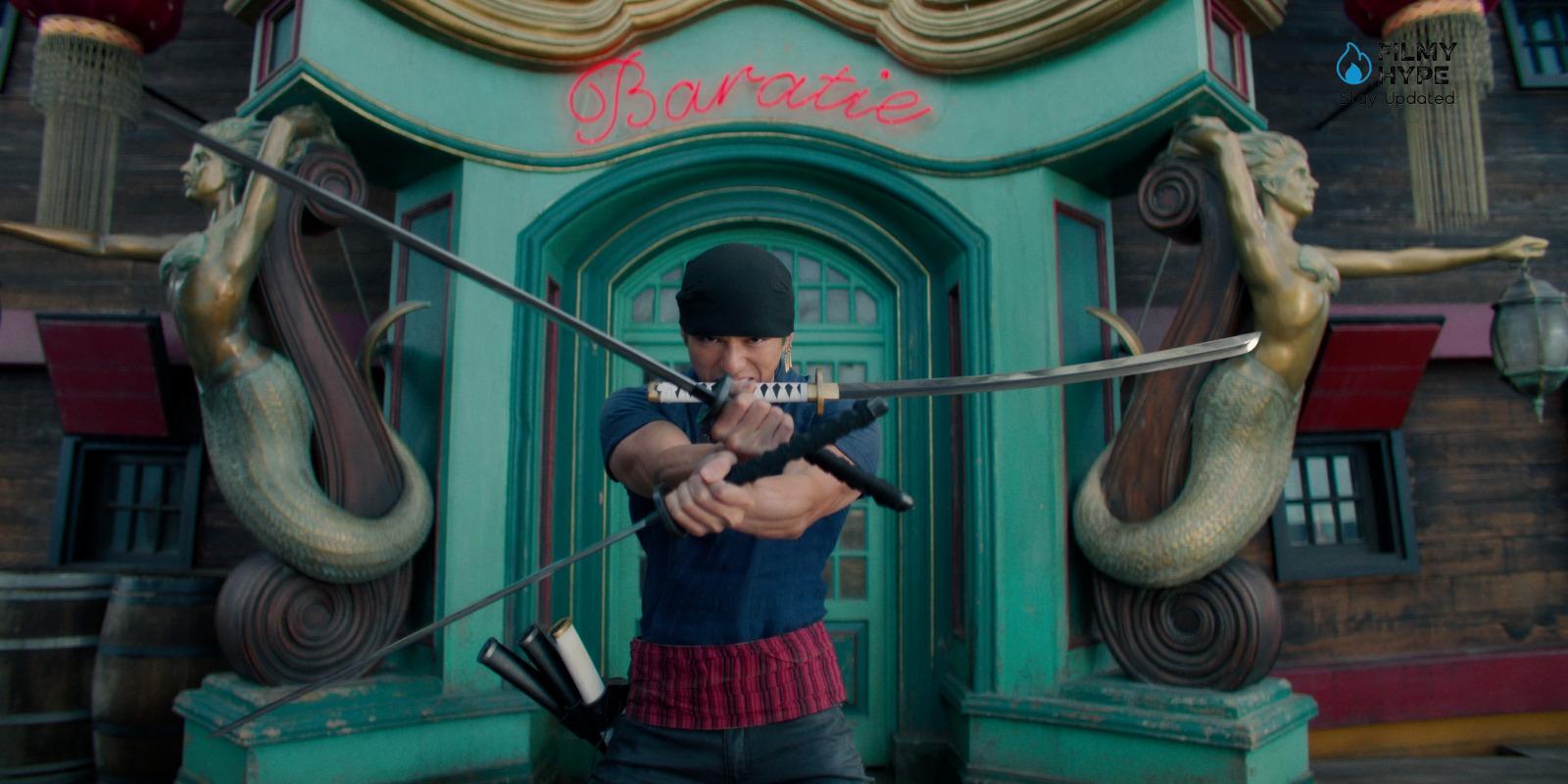
Here therefore, compared to the manga, we see antagonists appear prematurely and more recurring supporting actors, and there is even space to show a backstory that sensei Oda has only shown us in passing: for example, breath is given to events that are carried out only in the mini-adventures of the manga, not to mention the multitude of easter eggs that refer to cameos, events and islands that will only be seen in the more advanced stages of the journey. Drying out the main plot compared to the manga inevitably involves sacrifices: choices that I still found functional to the structure of the work, even though cutting some passages impoverishes the characterization of some characters.
But these are not serious stumbles. The point is precisely this: despite the indisputable flaws in the staging, the ONE PIECE TV series makes no mistakes in the key moments of the story. The most memorable tables, unforgettable moments, to say the least, and burned into the hearts of the fans, are all there, they manage to excite, capture the soul of the work, and tell the main themes of friendship, the journey and the pursuit your dreams at any cost. And that’s the beauty of it: reaching the end of an eight-hour journey, laughing and being moved by the dreams of an irresistible crew. And understand – or rather, hope! – that this is by no means the end, but the beginning of a great adventure.
One Piece Review Netflix: The Last Words
One Piece Netflix embraces the original work in a surprisingly joyful and kitsch way, abandoning any desire for a realistic adaptation. The TV series manages to convey the same sensations as the anime and manga for most of the episodes, highlighting fresh and unusual themes and some good narrative intuition. However, some slightly didactic passages, some changes compared to the original material and some technical flaws could make one turn up their noses. For newbies and casual viewers, it might be interesting, but for long-time fans, the opinion might not be positive. ONE PIECE is the heart that wins over reason. Because there are problems, and the defects are those of contradictory staging. But the heart is there, and it’s huge. That of the protagonists, who put body and soul into characters they love viscerally. The heart of the story treats the teachings of Eiichiro Oda with sacred respect, to the point that the tears in the key moments of the journey are almost the same. A cry of love, which “engraves itself inside our hearts like a tattoo”. This is how, sometimes, stories should be experienced. With a giant smile on his face.



